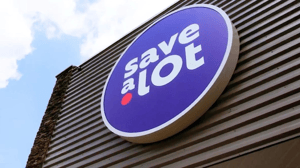Fairway Files Chapter 11; Village Bids for Manhattan StoresFairway Files Chapter 11; Village Bids for Manhattan Stores
Company cites high labor costs, debt service. The iconic New York grocer, which was unable to find a buyer on its own, seeks a court-led auction of all its stores, including five bid on by ShopRite operator Village Super Market.

Citing heavy debts and a cost structure preventing sufficient investment to turn around diminishing sales, Fairway Group Holdings has filed for Chapter 11 bankruptcy protection, under which it intends to conduct an auction of all its assets.
The operator of New York’s iconic Fairway Market chain said it has entered into an agreement with ShopRite operator Village Super Market Inc., under which Village has been named the “stalking horse” bidder for Fairway’s five Manhattan stores—including its Upper West Side flagship—and its distribution center. Fairway said it would separately look to auction its other eight stores under court protection.
Fairway said a committee of senior lenders is supporting the plan and has agreed to provide up to $25 million in debtor-in-possession financing that will help Fairway remain operational throughout the sale and reorganization. In court filings, Fairway has proposed conducting auctions on March 13, consummating sales by early April and completing the bankruptcy process by May 27.
“We would like to extend gratitude to our employees, vendors, distributors and customers for their support, dedication and loyalty over the years. It has always been Fairway’s priority to ensure our patrons are provided with the most optimal grocery experience, with the freshest foods and best-quality products, and our employees feel appreciated,” Abel Porter, CEO of Fairway, said in a statement. “After careful consideration of all alternatives, we have concluded that a court-supervised sale process is the best way to meet our objectives of preserving as many jobs as possible, maximizing value for our stakeholders, and positioning Fairway for long-term success under new ownership.”
Fairway’s Chapter 11, filed in the Southern District of New York, is its second in four years and follows an attempt to sell itself earlier this year that drew only conditional interest: No bidder had been willing to assume Fairway’s liabilities—in particular, its substantial labor and pension obligations—in connection with a purchase of its stores, the company said.
The Village Super Market offer for $70 million is “free and clear” of such liabilities, Fairway said, although the bid agreement requires Village to negotiate with unions in cooperation with Fairway. Many of Village’s employees are also represented by unions.
About 83% of Fairway’s more than 3,000 employees are represented by unions, most of them by United Food and Commercial Workers Local 1500. Fairway currently is party to four collective agreements and has substantial pension obligations.
In court documents, Fairway said if it were unable to achieve “free and clear” sales within the time periods called for, it would be left with no choice but to liquidate in a “fire sale.”
Fairway reported a net loss of $68.8 million on sales of $643.3 million over the 52 weeks ending Dec. 1. Gross profit on sales was $227 million and EBITDA was $23 million, but operating costs, including interest and support for declining sales, wiped out profits.
Fairway’s same-store sales decreased by about 5% in the 52 weeks ending Jan. 12.
Although possessed of some choice locations and a much-loved brand known for its brash merchandising style; deep assortments in fresh and specialty departments such as cheese, deli and seafood; and the quality of private brand items such as its olive oils and coffee, Fairway could not overcome a cost disadvantage to competitors, which generally have more fuel to attract and retain customers, renovate stores and invest in technologies, Porter said in a declaration.
“The scale advantages that extremely large grocers such as Amazon, Walmart, Target, Costco, BJ’s, Stop & Shop, CVS, Walgreens, Aldi, Lidl, Dollar General and Dollar Tree have over regional grocers like Fairway cannot be overstated,” Porter said. “These larger grocers all have investment grade credit ratings, which makes their cost of capital meaningfully lower and affords them extraordinary capacity to invest in lower prices, higher wages, more advertising, more effective modern technology and further growth, all of which enhance the probability a consumer will become and remain their customers.”
Should Village Super Market’s bid prevail, it would continue that chain’s move to claim food sales in New York City and mark its second acquisition of a beloved New York specialty grocer in a year. Last summer the Springfield, N.J., chain quietly acquired Gourmet Garage, a specialty chain known as a destination for chefs and food writers, with three neighborhood stores. Like Fairway however, that chain was feeling the effects of high costs and competition from financially stronger competitors such as Trader Joe’s and Whole Foods Market, which have built increasingly dominant positions in recent years.
Acquiring Fairway stores would get them back into family hands. Although Village has some publicly traded stock, it is still run and controlled by descendants of the founding Sumas family.
“Perry and Nick Sumas opened the first Village Market in 1937, and our family continues to believe deeply in the importance of neighborhood grocery stores,” Robert Sumas, CEO of Village, said in a statement. “We appreciate that Fairway’s loyal customers are concerned about the future, and if we are successful in our bid, we are committed to keeping Fairway, including its name, unique product selection and value, a part of this community.”
Village also has experience with high-volume fresh-focused stores, such as its units with the Village Food Garden food halls. These stores have helped Village “out-Wegman Wegmans,” according to one industry observer.
Fairway Market's legal counsel is Weil, Gotshal & Manges LLP; its M&A investment banker is PJ Solomon, and its financial advisers are Mackinac Partners.
The senior lenders are represented by King & Spalding LLP.
About the Author
You May Also Like






